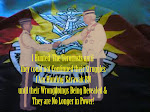Kuching
Wednesday, 19th May 2010
Mupok Aku

Wednesday, 19th May 2010
Although I have in my travels seen abject poverty in such diverse places as Addis Ababa, Dhaka, Dar es Salaam, Kolkata, Mumbai and Manila, I must confess to a feeling of utter revulsion and anger when confronted by stark deprivation in our supposedly well-governed and prosperous Malaysia.
The pockets of rural poverty in the Malay heartlands of Kedah, Perlis, Kelantan and Terengganu are islands of prosperity compared to the scene that churned my stomach and assailed my sense of guilt and outrage when I first ventured into the Iban long houses on the majestic Rejang.
It is not enough that we have robbed them of their ancestral lands and impoverished them in the process, but we also felt constrained to strip them naked of any residual personal dignity that they might still have by introducing policies that have succeeded in reducing them to the fringes of mainstream economic life.
The Orang Asli tribes and the Orang Hulu, the Malays from the interior, have a great deal in common with their Dayak friends. For all we care, they are Malaysia’s forgotten people, but not quite. Whenever an election is underway, be it a by-election or a general election, they find themselves the centre of attention, in great demand by the rich and powerful, all claiming to love and care for them.
Before the day is out, they are the proud possessors of a handful of crisp 50 ringgit notes. Four or five hundred ringgit is a princely sum to them, a king’s ransom, no less, in exchange for their votes. If some of them have become cunning, manipulative supplicants and sacrificed their values for a fistful of ringgit, remember it is we who have corrupted them.
Is this what we call 1Malaysia..Without electricity, clean water and access road....???PM Najib must be kidding..People First is just another jokes from BN
Years of exposure to extreme poverty and unbridled exploitation have rendered many of these once proud and noble people, nature’s gentlemen, inured and insensitive to their own traditional values and value systems. They are reduced to living from hand to mouth, on handouts, from day to day.
What a tragedy to befall a people whose only sin is to trust those sworn to protect their native rights. They are bewildered to find themselves dispossessed, as their land is taken away without as much as “by your leave” for commercial exploitation by the towkay friends of the powerful.
Talking to many of them, the Ibans, I mean, I believe the only way we can restore their pride and dignity is by providing opportunities for regular employment. We are dealing with an ancient people with a distinctive culture. Even those among them whose lives have taken on an urban aspect continue to cling strenuously to their traditional practices. We who are strong have a duty to help the weak by not foisting on the Ibans and others our culture of corruption and other despicable practices.
Some years ago, an Indonesian anti-corruption activist friend of mine visited our country during the 11th general elections, as part of a privately funded election observer mission. His group spent a great deal of time in Sarawak and Sabah and told me that he was shocked by the scale of vote buying.
I was greatly embarrassed by his revelation because at an anti-corruption conference in The Hague at which I was invited to speak and he was a participant some two months earlier, I had said that while vote buying was rampant in party elections, the practice was unknown in general and state elections.
I was unbelievably naïve to believe the Barisan Nasional government propaganda. The scale of vote-buying must have been so massive as to shock my Indonesian anti-corruption fighter, used as he was to living and working in a corruption-infested nation. It is not that easy to shock an Indonesian over a corruption issue. But unlike Malaysia, Indonesia is on the mend as far as fighting corruption is concerned. In Malaysia, on the contrary, it is in indecently robust health.
Malaysia is blessed with rich natural resources and poverty as we have seen in Sabah, Sarawak, Kedah, Perlis, Kelantan and Terengganu can only be explained in terms of governance grounded on corruption and political excesses. When we look at the personal wealth accumulated by Chief Minister Taib of Sarawak at one extremity and the Ibans at the other, one begins to wonder what the future holds for Malaysia. I am not at all sanguine.
The thieving and plundering by those in power must stop because, as history tells us, it is only a matter of time before the forbearance of the long suffering poor takes on an ugly aspect, with consequences too dreadful to contemplate. The Government of Malaysia and the state governments of Sabah and Sarawak in particular can alleviate poverty by governing in the sole interest of the people. Najib’s people first is under close public scrutiny.
Mupok Aku

AGI IDUP AGI NGELABAN































